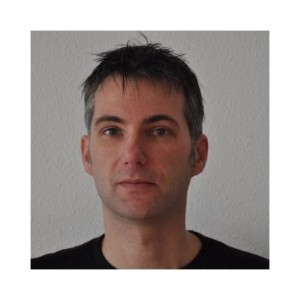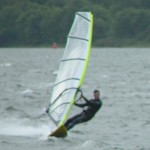Curriculum Vitae

Dr. Ir. Jean-Paul Fox
Faculty of Behavioural, Management and Social Sciences.
Research Institute for Social Sciences and Technology
University of Twente P.O. Box 217
7500 AE Enschede The Netherlands
+31 53 4893326
j.p.fox at utwente dot nl
https://www.Jean-PaulFox.com www.researchgate.net/profile/Jean_Paul_Fox
Professional record
-
- 2018 – 2022: Associate Professor, Department of Research Methodology, Measurement and Data Analysis. Faculty of Behavioural, Management and Social Sciences, University of Twente.
Worked on research projects to measure differential treatment effects (statistical tools for personalized healthcare). Developed Bayesian statistical methods to measure differences between treatment groups as well as differences between patients receiving the same treatment (tools for assessing individualized treatment effects). Key publications Baas, Boucherie, and Fox (2022, contributed to BIO-RESORT); Fox and Smink (2021).
Special issue editor of Statistical Methods in Medical Research (2021). Lead special issue on advanced statistical methods for longitudinal measurement data in medical research. (Contributions from a joint project with Prof Twisk of VUmc).
Contributed to a large-school intervention program in the Netherlands on data-based decision making to improve student achievement (PI Prof Visscher of UT). Developed statistical methods to measure differential effects of the intervention across schools and study programs. Key publications van Geel et al. (2016, 2019), Keuning et al. (2019).
- 2013 – 2018: Adjunct Professor, Department of Research Methodology, Measurement and Data Analysis. Faculty of Behavioural, Management and Social Sciences, University of Twente.
Member of the OECD expert-group on the issue of measurement invariance in large-scale surveys. Contributed with a new statistical method to allow survey instruments to vary in their properties over time and countries, while measuring on a common scale to make fair comparisons between countries and over time. Key publications Van de Vijver et al. (2019), Fox et al. (2020).
Contributed to the project What Works When for Whom (UT), designed statistical models to examine differential treatment effects in the study of therapeutic change processes on intervention outcomes. Key publications Fox and Smink (2020), Smink et al. (2019).
Developed statistical methods for measuring cognitive decline from MMSE test data. Trajectories of cognitive decline can be integrated in a survival analysis. Key publications Van den Hout et al. (2015), Klein Entink et al. (2011).
- 2014 – 2018: Psychometrician, Cito (Psychometrisch Onderzoek en Kenniscentrum), Arnhem, The Netherlands.
- 2007 – 2013: Associate Professor, Bayesian Psychometric Response Modelling, Faculty of Behavioural Sciences, University of Twente. (VIDI personal grant)
- 2005 – 2007: Assistant Professor, Faculty of Behavioural Sciences. University of Twente.
- 2001 – 2005: Post Doc, (VENI personal grant)
- 1997 – 2001: PhD student at the University of Twente, Netherlands.
- 1996 – 1997: Statistician. I&O Research, The Netherlands.
Academic Education
2001 Doctorate University of Twente, Enschede, The Netherlands Title Thesis: “Multilevel IRT: A Bayesian perspective on estimating parameters and testing statistical hypotheses” supervisor Prof. Dr. C.A.W. Glas and Prof. Dr. W.J. van der Linden.
1996 Master’s (‘Doctoraal’) University of Twente, Enschede, The Netherlands Title Theses: “Regularisation through prior distributions” supervisor Prof. Dr. Ir. W. Albers
Research grants Fox contributed to projects granted by the Dutch (NWO, innovational research incentives scheme) as well as European (IFPI) and international (NIA) funding agencies. (IFPI: Causes and Consequences of Digital Music Piracy, OECD PISA, Cycle 2009, Core B: background questionnaires, NIA: Improving cognitive outcome precision & responsiveness with modern psychometrics)
2017 Marginal Joint Modeling of Response Accuracy and Response Times. LSAC ($198,288)
2016 Testing Measurement Equivalence in International Large-Scale OECD Projects. Organisation for Economic Co-operation and Development (OECD).
2015 Measurement invariance testing using Bayes factor. LSAC. The Law School and Admission Council (LSAC) is a non-profit corporation that provides unique, state-of-the-art products and services to ease the admission process for law schools. The grant provided by LSAC has been used to further develop Bayesian statistical tools to evaluate measurement invariance assumptions in item-based tests.
2014 Bayesian model testing in item response theory: Bayes factors (CTB/McGraw-Hill), Euro 61,077 ($84,830). CTB is a publisher of educational assessment tests for the early learners and adult basic education markets. The grant has been used to develop Bayes factor tests for item response theory models and measurement invariance testing.
2013 Response time modelling and its applications (LSAC). Euro 165,308 ($228,059). Project aimed at the joint modeling of responses and response times to make inferences about achievement and speed of working of test takers.
2007 NWO Vidi grant (452-07-003). Bayesian methodology for large-scale comparative research. Euro 599,057.
2004 NWO VENI grant (451-04-032). Multilevel item response theory models. Euro 200.000
(Co-)Supervision of PhD students
-
- Rosalie Gorter (2010 – 2017, VUmc, with Prof. Jos Twisk). Longitudinal data-analysis using IRT techniques.
- Sukaesi Marianti (2013 – 2016, UT). Contributions to the joint modeling of responses and response times.
- Jose R.S. Santos (2013 – 2016, University of Campinas, Brazil). Skew IRT models for longitudinal data with multiple groups via Copula
- Marieke van Geel (2011 – 2015, UT). The effects of a training data-based decision making for primary school teams.
- Trynke Keuning (2011 – 2015, UT). The effects of a training in data-based decision making for primary school teams at schools with students at risk.
- Rosalie Gorter (2010 – 2015, VUMC). Longitudinal data-analysis using IRT techniques.
- Josine Verhagen (2008 – 2012). Modeling structural and measurement heterogeneity in large-scale survey research.
- Marianna Avetisyan (2008 – 2012). Response bias and incomplete data in large-scale survey research.
- Caroline Timmers (2007-2012). Computer-based formative assessments using feedback for learning.
- Rinke H. Klein Entink (2005 – 2009). Simultaneous modeling of item response and time response data with background variables.
- Joris Mulder (UU) (2006 – 2010). Applying Bayesian methodology to inequality constrained multivariate linear models.
- Jonald Pimentel (2001 – 2005). Item response theory modeling with nonignorable missing data.
- Irene Hendrawan (2000 – 2004). The effect of item response theory model violations on practical test applications.
(Educational) Committees
- 2018-2021 Wetenschappelijke Advies Commissie (WAC lid) of Dutch Research Council.
- 2015–2016 Chair Examination Committee; Faculty of Behavioural Management and Social
Sciences. - 2015-2016 Chair Examination Committee; Faculty of Behavioural Management and Social Sciences. (https://www.utwente.nl/bms/examboard/composition/).
- 2015-2016 Chair Examination Subcommittee; Behavioural Sciences.
- 2012-2020 Member, program committee, Research Master Methodology and Statistics for the Behavioural, Biomedical and Social Sciences (UT).
Miscellaneous
- 2013–2016: Member ethics committee faculty Behavioral Sciences.
- 2012–2020: UT-Program coordinator of the Research Master Methodology and Statistics for the Behavioural, Biomedical and Social Sciences.
- 2006–2016: Co-organizer Meetings of SWS-VVS (Netherlands Statistical Society, Social Sciences Division).
- 2010-present: Associate Editor British Journal of Mathematical and Statistical Psychology.
- 2010-present: Associate Editor Journal of Educational and Behavioural Statistics.
- 2012-2016: Member of De Jonge Akademie of the University of Twente, (JA@UT, www.utwente.nl/jongeakademie).
- Co-organizer: Fall Meetings of SWS-VVS (Netherlands Statistical Society, Social Sciences Division).
- Co-organizer: Spring Meeting of SWS-VVS (Netherlands Statistical Society, Social Sciences Division).
Board of Psychometric Associations
- 2006 – 2016 Member of the Board of the social sciences section of the Netherlands Society for Statistics and Operations.
- 2008 – present Board of the Interuniversity Graduate School of Psychometrics and Sociometrics (IOPS).
Education activities Teaching experience at undergraduate and graduate level (Research Master). Courses in mathematics, statistics, and educational assessment. Postdoctoral courses developed and taught (with co-workers):
- IOPS (Interuniversity Graduate School of Psychometrics and Sociometrics). Analysis of Measurement Instruments: Introduction to classical test theory, item response models and multilevel item response models. (October, 2010)
- 39th GESIS Spring Seminar (Cologne). Bayesian Item Response Modeling. (February, 2010).
- A tailor-made training (NFP/ZAF/05/38) supported by the NUFFIC entitled “Evaluating and Changing Education Systems” for Human Science Research Council (HSRC), South Africa (2008).
- IOPS (Interuniversity Graduate School of Psychometrics and Sociometrics). Advanced Computation in IRT. (November, 2007).
- ICO (Interuniversity Centre for Educational Research). Item Response Theory. (March, 2007).
- IOPS (Interuniversity Graduate School of Psychometrics and Sociometrics). Sampling-based Statistical Inference. (April, 2003).
- IOPS (Interuniversity Graduate School of Psychometrics and Sociometrics). Multilevel Analysis. (March, 2003).
- ICO (Interuniversity Centre for Educational Research). Multilevel analysis. (March, 2001, 2002).
- ICO (Interuniversity Centre for Educational Research). Item Response Theory. (February, 1999).
Scholarships and Prizes
- Personal grant, VIDI, 2007-2012. (600 k€). An Innovational Research Incentives Scheme (Dutch: Vernieuwingsimpuls) from the Netherlands Organisation for Scientific Research (NWO).
- Personal grant, VENI, 2004-2007. (200 k€). An Innovational Research Incentives Scheme (Dutch: Vernieuwingsimpuls) from the Netherlands Organisation for Scientific Research (NWO).
- International Psychometric Society Dissertation Award, 2001.
Early Achievement-Track-Record
First author of 30 journal publications. Most influential publication Fox (2010).
Papers are available at www.Jean-PaulFox.com (Main menu item ‘Publications’).
Referee for:
- Journals: Journal of Educational and Behavioral Statistics (Associate Editor), British Journal of Mathematical and Statistical Psychology (Associate Editor), Psychometrika, Statistics in Medicine, Psychological Methods, Applied Psychological Methods, Computational Statistics and Data Analysis, …
- National Science Foundation (NSF, USA).
- The Netherlands Organisation for Health Research and Development (ZonMw).
- The Netherlands Organisation for Scientific Research (NWO). Selection committee Research Talent (2015).
Overview
Fox is a well-established researcher in the area of Bayesian response modelling. He developed a multilevel IRT model for analysing item response data and accounting for the nesting of respondents in clusters. This Bayesian hierarchical latent variable framework was the first to incorporate such a complex survey design in the psychometric model. The fully-integrated model correctly specifies dependencies at different hierarchical levels and can handle disaggregated and aggregated explanatory data. He received the 2001 Psychometric Association Dissertation award for his work on multilevel IRT modelling. Currently, for secondary analysis, large-scale surveys such as PISA, TIMMS, and PIAAC have followed this strategy by adopting the multilevel sampling design in the psychometric model. As a direct result, new statistical models and methods have been developed (by Fox and co-workers), amongst others:
- Bayesian estimation of a multilevel IRT model. Psychometrika, 2001;
- Bayesian Item Response Modeling, Monograph, 2010.
- Bayesian modeling of measurement error in predictor variables using item response theory, Psychometrika, 2003.
The early contributions in the area of complex psychometric models of the PI have been recognized worldwide. In 2004, he received a personal grant (VENI, an innovational research incentives scheme) from the Netherlands Organisation for Scientific Research (NWO) for his research on multilevel IRT modelling. He is well-known for his work on multilevel IRT modelling and is world-wide frequently asked to give (keynote) lectures or courses. In later years, he has developed methods, in different directions, for large-scale survey research. A new approach has been developed for dealing with measurement invariance in cross-national comparative survey research, which avoids the complex specification of anchor items. Parts of the results were published in top journals in the field of marketing research. This research was supported by a personal grant in 2007 (VIDI, an innovational research incentives scheme) from the Netherlands Organisation for Scientific Research. Other new approaches focused on model extensions to deal with background questionnaire data and retrieving sensitive survey information. He has made novel contributions integrating the randomized response technique in survey methods to obtain accurately sensitive respondent information, which are currently implemented in large-scale survey studies on excessive alcohol consumption (Netherlands) and illegal downloading behaviour (Germany). Besides these survey studies, he is also involved in the Programme for International Student Achievement (PISA, cycle 2009).
His monograph entitled “Bayesian Item Response Modeling” was published in 2010 by Springer Science and has been positively reviewed in three excellent journals, covering research fields in statistics and psychometrics, and generally marked as an important contribution of a high technical level.
In 2005 he was offered a permanent position in the Research Institute for Social Sciences and Technology at the University of Twente. As a result of the successful research activities on Bayesian psychometric response modelling he was appointed a position on September 1st 2007. Recently, he also obtained a research position in the Institute for Innovation and Governance Studies with a focus on survey methodology in health assessment research using patient reported outcomes.
